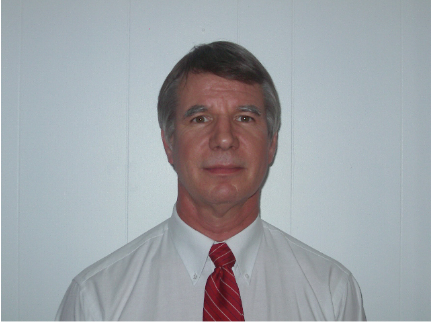Dr. Jack Killgore Dr. Killgore is a Research Fishery Biologist with the U.S. Army Engineer Research and Development Center (ERDC). Jack completed his bachelor in Zoology at the University of Arkansas in 1976, his master in Fisheries Biology at Sam Houston State University in 1979, and his Ph.D. in Biology at the University of Mississippi in 1995. He worked for the U.S. Fish and Wildlife's Reservoir Research Program in 1979-1980, and since then has been working at ERDC for 37 years.
Dr. Killgore is a dedicated and productive fisheries scientist and has contributed immensely to fish ecology, conservation and management. In his current position Dr. Killgore serves as technical leader of a research team in ERDC's Environmental Laboratory (i.e., the Fish Ecology Team). As leader of the Fish Ecology Team, Dr. Killgore obtains funding and directs the research of a staff of biologists and technicians. He has served as principal or co-principal investigator for over 150 USACE research projects in the last 25 years, including projects in streams, navigable rivers, reservoirs, and wetlands. His research interests include habitat assessment of large river fishes, conservation of endangered species, aquatic habitat restoration, environmental impact analysis, and early life history of fishes. Jack has authored or co-authored over 70 peer-reviewed journal articles and book chapters, and over 100 ERDC-WES and USACE scientific reports.
Dr. Killgore is one of the USACE's leading authorities on freshwater fish ecology. The USACE and other federal agencies rely on his expertise and experience to solve environmental issues related to congressionally-approved water resource projects involving millions of dollars. He has a reputation for excellence, reliability, and scientific integrity. The USACE relies on his team to provide answers that help solve large and complex environmental problems. He is responsible for confronting applied research problems of fundamental interest and extraordinary difficulty. Results from these studies eventually influence USACE policy, planned activities, and shape the programs of government agencies managing aquatic resources. Some recent research activities of Jack and his team include fish entrainment by towboat navigation in the Mississippi River, Asian carp dispersal in the Chicago Sanitary and Ship Canal, Pallid Sturgeon restoration in the Mississippi River, fish passage and entrainment at Old River Control Complex, integration of biological and physical processes related to river-floodplain connectivity in the Lower Mississippi River batture, and baseline fisheries studies in the lower 70 river miles of the Mississippi River.
His team is in constant demand for reimbursable research from federal agencies. As a result, Jack often has more work than he can handle. To fill this gap, Jack has always sought collaboration with researchers at universities. He has funded researchers at several regional universities including Mississippi State University, University of Arkansas at Pine Bluff, University of Louisiana Monroe, University of Mississippi, and University of Southern Mississippi. This funding has not only expanded the Fish Ecology Team's footprint, but has also allowed research programs at universities to grow while educating many graduate students. Jack is one of the most collaborative scientists we know. He is always looking to make connections with scientists that can help expand the reach of his research team.
Because of his stature in our field he has been asked to perform a variety of advisory activities. Some of these include serving in the Advisory Committee to the Department of Wildlife, Fisheries and Aquaculture at Mississippi State; serving as chairman of the Habitat Restoration Committee, Lower Mississippi River Conservation Committee; serving as member of the Yazoo Basin Environmental Team organized by the Mississippi Department of Environmental Quality; and numerous other committees and task forces. He also serves as the "fish representative" in many USACE Districts, including being a key participant in controversial projects such as Yazoo Backwater and St. Johns/New Madrid. Through his stature, Dr. Killgore has influenced many USACE water management projects. In the process, he has advocated for the fish, contributed to ecosystem restoration, and enhanced the USACE's commitment to environmental stewardship.
Dr. Killgore has also been very active in the Mississippi Chapter of the American Fisheries Society. Over time Jack and his team have contributed numerous presentations to our annual meetings. In 2005-2006 he served as president of the Mississippi Chapter of the American Fisheries Society, and has served the Chapter in several committees. Additionally, over the years he has enabled the contribution of a substantial amount of funds from the USACE to the Mississippi Chapter to facilitate conduct of annual meetings.

-
Chapter Info
-
Meetings & Archives
If
you have questions or suggestions concerning this site, please Dr.Kevin M
Hunt.
This page was last modified:
This page was last modified:
